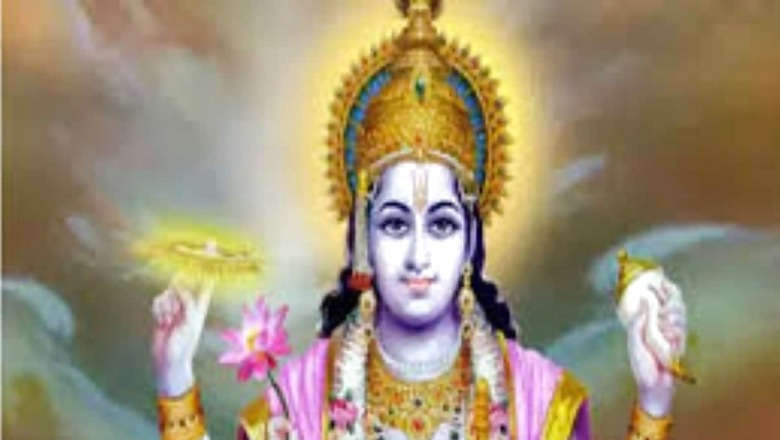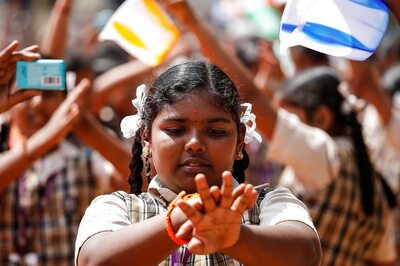
views
Nirjala Ekadashi is one of the most significant and stringent fasting days observed by Hindus. It occurs on the 11th lunar day (Ekadashi) of the waxing (Shukla Paksha) fortnight of the month of Jyeshtha in the Hindu calendar, which typically falls in May or June. The term “Nirjala” means “without water,” indicating that devotees undertake a rigorous fast that involves abstaining from both food and water for 24 hours. Observing Nirjala Ekadashi is believed to grant the benefits of all 24 Ekadashi fasts of the year. It is dedicated to Lord Vishnu, and devotees seek his blessings for health, wealth, and spiritual progress.
This time the fast of Nirjala Ekadashi is on May 19. According to the Hindu calendar, the Vaishakh Shukla Paksha Ekadashi tithi will begin on May 18 at 11:22 am and will conclude on May 19, at 1:50 pm. Based on the Udaya Tithi, the Nirjala Ekadashi fast will be observed on May 19. The auspicious time for worship on this day will be from 7:10 am to 12:18 pm. The Nirjala Ekadashi rituals will be performed on May 20 between 5:28 am and 8:12 am.
There are specific rules for observing the Nirjala Ekadashi fast. Begin by taking a bath in the morning and offering water to the Sun God. Then, wear yellow clothes and worship Lord Vishnu with yellow flowers, Panchamrit, and Tulsi leaves. Afterwards, recite mantras dedicated to Shri Hari and Goddess Lakshmi.
It’s also customary to donate water, food, clothes, shoes, or an umbrella to a person in need. Typically, the fast is observed without consuming water, but if necessary, you may have water and fruits. Take a bath the next morning and offer water to the Sun. After this, donate food, clothes and water to the poor. Then end the fast by drinking lemon water.
Nirjala Ekadashi is closely associated with the legend of Bhima, one of the Pandava brothers from the Indian epic, the Mahabharata. Bhima, known for his immense physical strength and insatiable appetite, found it extremely difficult to observe the traditional Ekadashi fasts, which involve abstaining from food and water. Bhima approached the sage Vyasa for advice. He expressed his desire to observe the fasts but confessed his inability to control his hunger. Understanding Bhima’s predicament, Vyasa suggested a solution.
Sage Vyasa advised Bhima to observe just one Ekadashi fast in the entire year with utmost devotion and rigour. This would be the Nirjala Ekadashi, the most stringent of all Ekadashis, requiring complete abstinence from food and water for 24 hours. Bhima undertook the Nirjala Ekadashi fast with full dedication. He refrained from consuming any food or water and spent the day in prayer and meditation. His successful observance of this fast set an example and highlighted the significance of Nirjala Ekadashi in the Hindu tradition.




















Comments
0 comment